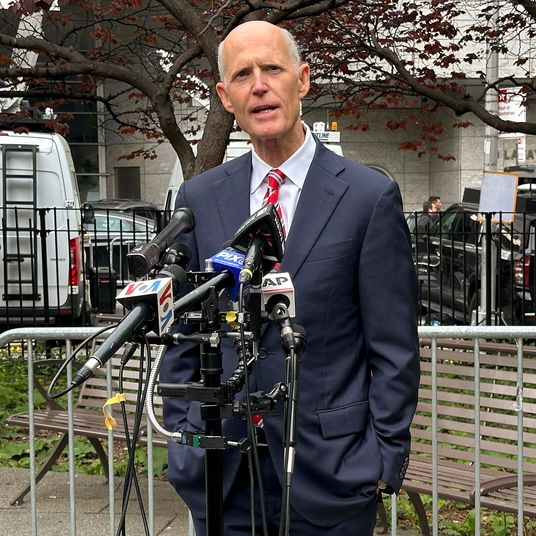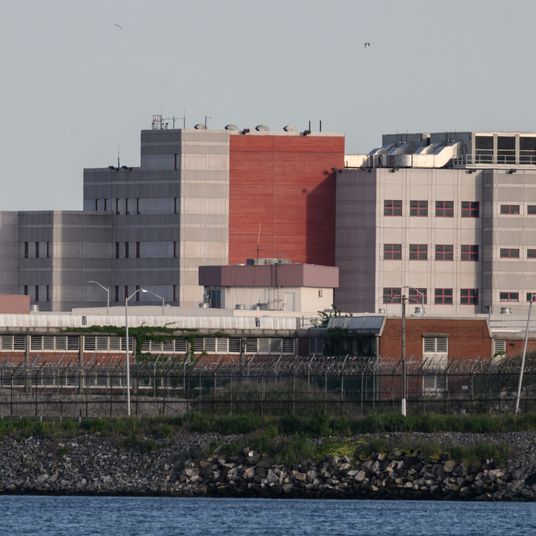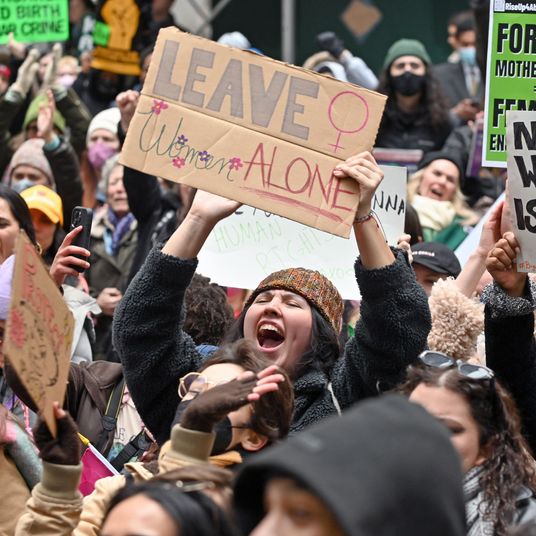
Joe Manchin is a bad Democratic senator. He opposes the Dream Act and supports a border wall. He voted against LGBT rights, and for confirming a vengeful Republican operative to the Supreme Court. When the most significant legislation, on the single most important issue facing humanity, arrived at the upper chamber, Manchin didn’t just vote against it — he shot with a rifle.
West Virginia is a deep-red state. To represent the views of his constituents, Manchin probably does need to buck the progressive line on some issues. But he is far more conservative than he needs to be. Manchin didn’t vote to gut a bunch of banking regulations last year because ordinary West Virginians gathered outside his office chanting, “WHAT DO WE WANT? TO RAISE THE THRESHOLD FOR ENHANCED REGULATORY SCRUTINY FROM $50 BILLION IN ASSETS TO $250 BILLION! WHEN DO WE WANT IT? NOW!” Meanwhile, polls suggest there are a wide range of progressive economic policies that a majority of West Virginians support — such as a federal job guarantee and lead removal — but which Joe Manchin has evinced little interest in promoting.
And yet, a bad Democratic senator is a whole lot better than a Republican one. When Mitch McConnell and Paul Ryan tried to throw millions of low-income Americans off Medicaid, gut protections for people with preexisting conditions, and give a giant tax breaks to the rich and corporations, West Virginia’s Republican senator played ball. Manchin didn’t. Further, without Manchin’s butt in that seat, it’ll be close to impossible for Democrats to retake the Senate in 2020. Manchin could afford to be a more progressive Democratic senator. But a more progressive Democratic senator will (almost certainly) not win election in a state as Republican as West Virginia is today. Manchin’s unique appeal to an electorate that he has represented in various capacities for nearly four decades is the only thing that makes it possible for Team Blue to win a split of the Mountain State’s Senate seats.
Which is why this could be very bad news:
Sen. Joe Manchin (D-W.Va.) is eyeing a possible exit from the Senate, and his decision could be a significant factor in which party controls the majority in 2021. In moments of frustration, the centrist senator has gone so far as to tell colleagues he may leave the upper chamber before the end of this Congress, or after the 2020 elections.
… Manchin says he’s deeply irritated with the lack of bipartisan cooperation on Capitol Hill, where passing bills has largely become an afterthought in the 116th Congress.
Manchin noted supporters in West Virginia are pressing him to run for governor next year, and he’s considering it. “I have people back home that want me to come back and run for governor. We’re looking at all the different plays. I want to make sure whatever time I have left in public service is productive,” he told The Hill.
Manchin’s position is understandable. Being a governor is generally much better than being a senator, if your goal is to directly shape a lot of public policy. But if Manchin retires from the Senate, Democrats will have faint hope of securing unified control of the federal government in 2021.
Right now, the odds of Team Blue winning control of the Senate next year are slim. Democrats will need a net gain of three seats to wrest control from Mitch McConnell’s caucus. And while Republicans will have 22 of their incumbents on the ballot in 2020, only two of those represent states that have leaned Democratic in the past two presidential elections — Colorado and Maine. Which is less than ideal, since winning Maine will (almost certainly) require beating Susan Collins, who has held her seat for more than two decades, and remains fairly popular with her constituents (including many of the state’s Democrats). Thus, there is no reason to assume Democrats will be able to win the only two blue-state seats on the board. But let’s be generous and say they do.
Unless Alabama Republicans decide to make a theocratic ephebophile their standard-bearer again (which is highly unlikely), Doug Jones will be evicted from the Senate next November. In a presidential election year and an age of straight-ticket voting, even Roy Moore would have a decent shot of beating a Democrat in the Heart of Dixie.
Even with wins in Colorado and Maine, Team Blue would have only netted one seat, which means they’d have to flip two in light-red territory. CNN’s Harry Enten explains why that’s unlikely:
Beyond [Colorado and Maine], the Democratic pickup opportunities slim dramatically. Of the other 20 Republican-held seats up for election, 16 of them are in states that were 10 points or more Republican than the nation as a whole in a weighted average of the last two presidential elections. None of these races look competitive at this time.
The other four have leaned 5 to 10 points more Republican than the nation in a weighted average of the last two presidential elections: Arizona (Martha McSally), Georgia (David Perdue), Iowa (Joni Ernst) and North Carolina (Thom Tillis).
… Elected Republican incumbents are, at this point, expected to be running for all these seats, except for Arizona. Generally, incumbents tend to do better than non-incumbents. Even if the 2018 political environment were in effect (i.e. one where they won the national House vote by high single digits), the lean of each state in the 2018 House elections suggests that only Arizona (because McSally wasn’t elected) would go to the Democrats.
Still, given Trump’s current poll numbers, a 2020 landslide is possible. And although a popular vote landslide will not guarantee a Democratic Senate, it would give the Donkey Party a very good shot.
Unless Manchin retires. In which case, even a blue wave will likely be insufficient to oust McConnell’s majority. And since split-ticket voting is in steady decline, and the GOP’s structural advantage in the Senate shows no signs of abating, if Democrats don’t capture full control of government next year — and promptly admit new, left-leaning states to the union — Republicans will be well-positioned to lock up the upper chamber for a decade or more.
All of which is to say: Joe Manchin is awful, but also, conceivably, our only hope.






























